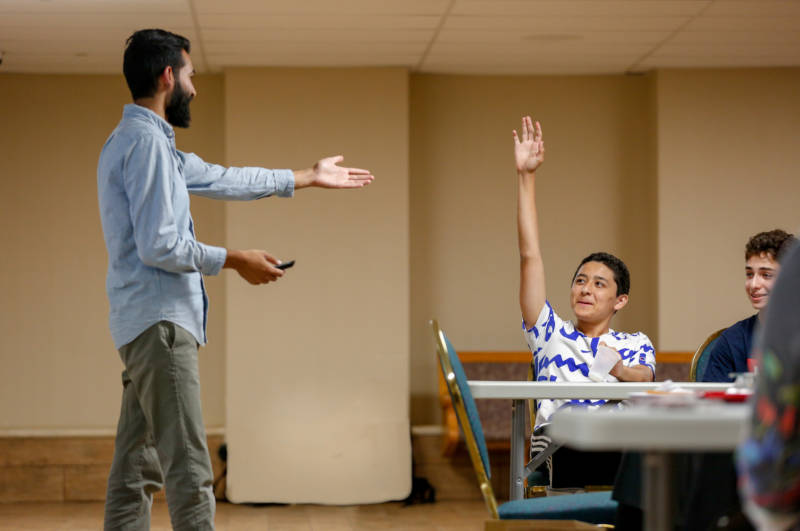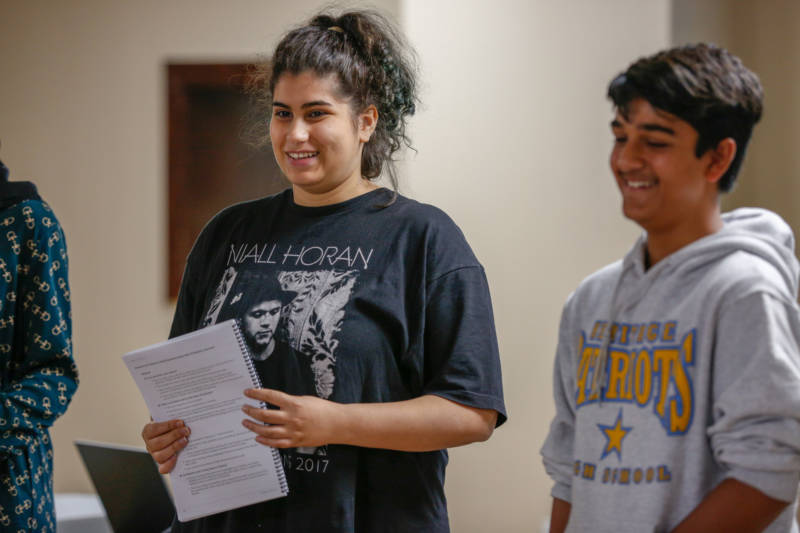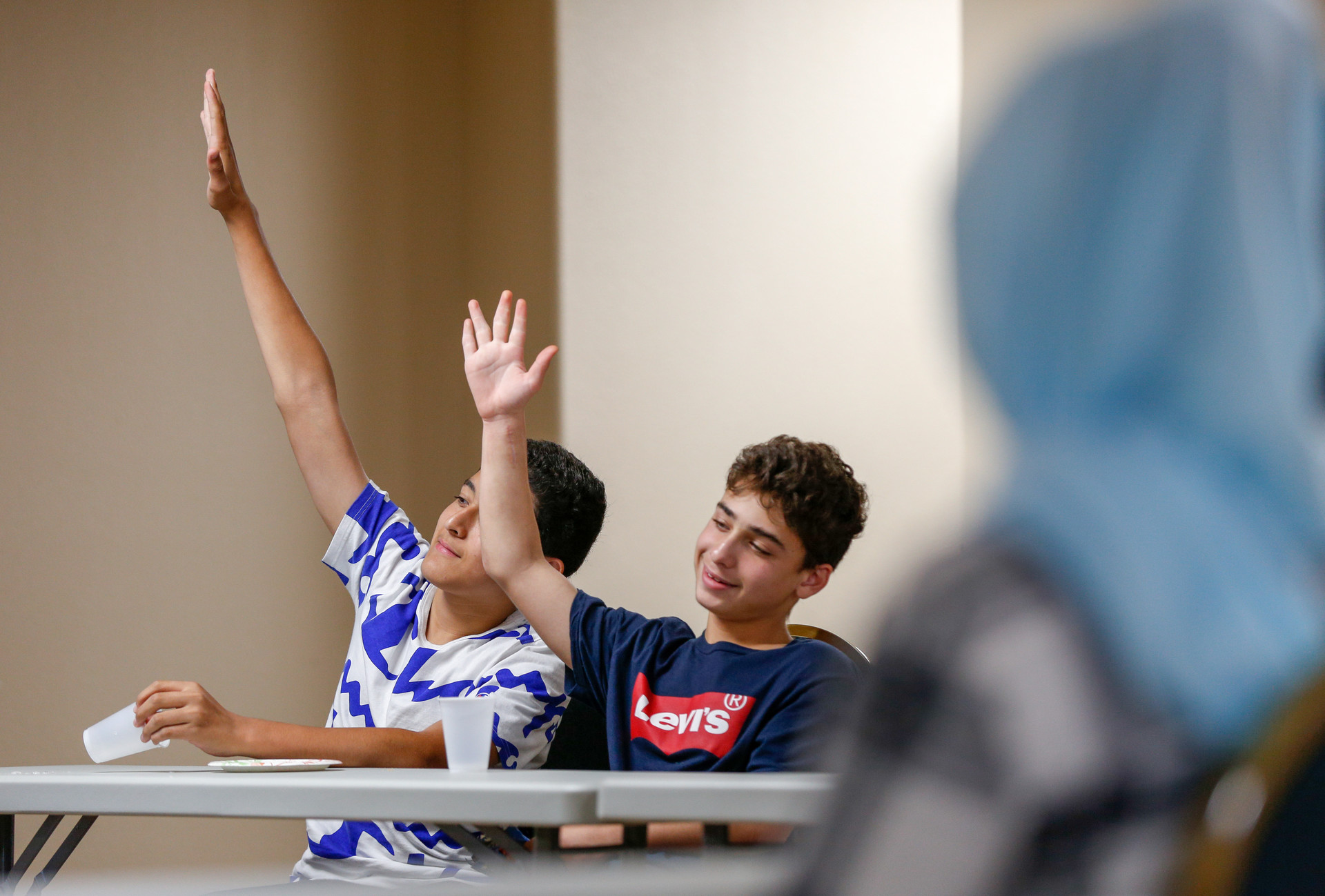If students intervene to confront bullies, start a conversation to counter negative stereotypes, or nip hurtful language or jokes in the bud, that helps create a better environment for everyone at school, Pathan told the students.
“None of this works if we just turn around and make fun of other people,” said Pathan. “It’s only going to work if we all reduce this thing together.”
As part of the training, students also practice presenting fact-checked materials to their community about the history of Muslims in America and their faith. Those include a list of more than 110 frequently asked questions and answers.
Using all those those components to stem discrimination and empower students is what makes the program unique, said Ansary and Muslim leaders.
After Saman Ali, 17, finished the ING training two years ago, she gave presentations to hundreds of students at her high school about the basics of her religion.
“I wanted to show kids that Muslims are just like anybody else,” said Ali, a senior at Monte Vista High School in Danville.
She said she realized most of her peers didn’t know much about Islam. Classmates asked her if she fasted during Ramadan, why she doesn’t wear a hijab and if she prays five times a day.
“They definitely wanted to know what do you do as a Muslim kid,” she said. “I can understand why they were confused. So I was there to clarify.”
Monte Vista High teacher Jill Seidenverg has repeatedly invited Ali to share her presentation in her AP world history class. Students are often more receptive to learning from a peer, said Seidenverg, and she’s seen a positive impact.



